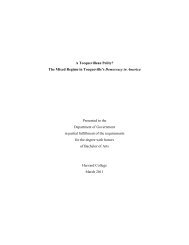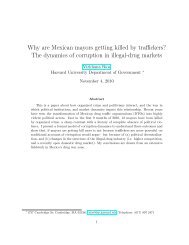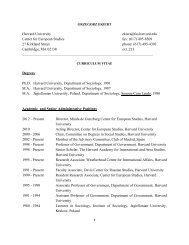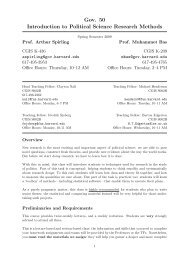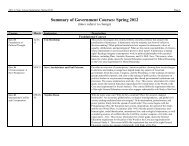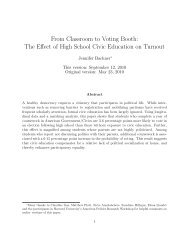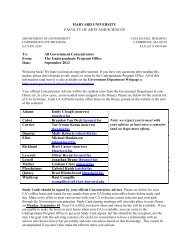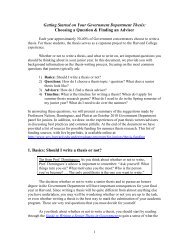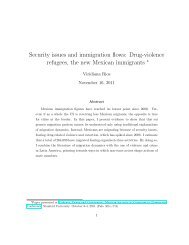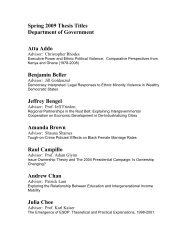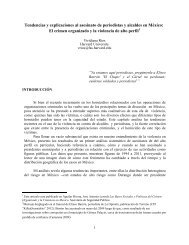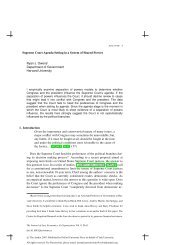1 Harvard University Political Theory Colloquium For 11 March 2010 ...
1 Harvard University Political Theory Colloquium For 11 March 2010 ...
1 Harvard University Political Theory Colloquium For 11 March 2010 ...
You also want an ePaper? Increase the reach of your titles
YUMPU automatically turns print PDFs into web optimized ePapers that Google loves.
15 <br />
‘inner frame’ for the measure doctrine [please ignore the solid lines here and below as<br />
typographical gremlins which I have been unable to expunge]:<br />
Come now, Protagoras, and reveal this about your mind: What do you think about<br />
knowledge? Do you go along with the many or not? The many think that<br />
knowledge (epistêmês) is neither strong (ischuron) nor fit to lead (hêgemonikon)<br />
nor fit to rule (archikon); instead, [they think that] while knowledge is often<br />
present in a man it is not knowledge itself which rules (archein) but something<br />
else, whether anger, pleasure, pain, at times love, often fear – they think of his<br />
knowledge as if it is being dragged about by all these other things like a slave<br />
(hôsper peri andrapodou, perielkomenês upo tôn allôn apantôn). Does it seem<br />
(dokei) like that to you, or that knowledge (epistêmê) is something noble and such<br />
as to rule a man (kalon…hoion archein tou anthrôpou), and if someone were to<br />
know the good and the bad, he would not be forced (kratêthênai) by anything to<br />
act other than as knowledge commands (epistêmê keleuêi), and so knowledge<br />
(phronêsin) would be sufficient to save a man.<br />
(352b-c, my translation, partly following Lombardo and Bell in Cooper, with<br />
thanks to Raphael Woolf for suggesting the translations of ‘fit to lead’ and ‘fit to<br />
rule’ to bring out the –ikos endings)<br />
Protagoras agrees that so it seems to him (dokei: a neat allusion to his ‘man is the<br />
measure’ doctrine?), and adds: ‘it would be shameful (aischron) for me to admit that<br />
wisdom (sophian) and knowledge (epistêmên) are not such as to be most powerful<br />
(kratiston) of all things in human affairs’. Socrates then announces that he agrees with<br />
Protagoras, but warns that ‘most people aren’t going to be convinced by us’ (352d,<br />
Lombardo and Bell in Cooper trans.). Notice that here Socrates is positioning himself<br />
against the views of the many, and on the side of Protagoras. He will use Protagoras’<br />
agreement that knowledge is inherently such as to rule, as a lever (ultimately) against his<br />
view that courage is radically different from knowledge.<br />
I begin by observing that despite the formulation of the inner frame passage just<br />
quoted at length, it subsequently emerges that what ‘the many’ think is not what they



